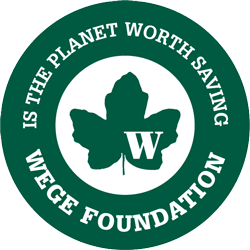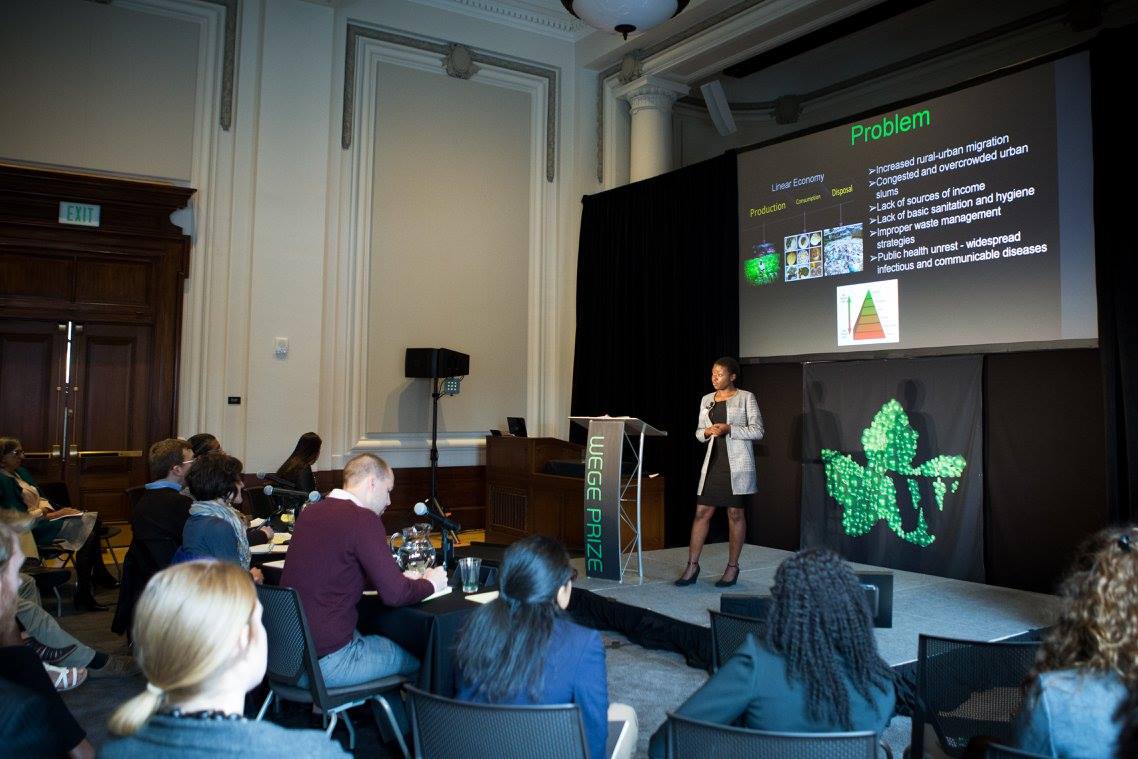five innovative ideas will face off for $30,000 in total cash prizes
Internationally-recognized judges to evaluate and award $30k in prizes at Kendall College of Art and Design in Grand Rapids, MI
Grand Rapids, Mich. April 19, 2017 – Wege Prize, a uniquely transdisciplinary design competition based in West Michigan focused on rethinking and redesigning how our economy works, has selected five teams of college/university students from around the world to move on to the final stage of the fourth annual competition. Now, those efforts will culminate in a presentation to a panel of leading practitioners and advocates of design thinking and sustainability.
At the 2017 Wege Prize Awards on May 19, 2017 at Kendall College of Art and Design of Ferris State University (KCAD) in Grand Rapids, Michigan, U.S.A., the five teams will present their ideas in full to the judges, who will choose a first, second, and third place winner. The top award of $15,000 will be given to the winning team, with awards of $10,000 and $5,000 going to the second-place and third-place teams, respectively.
Teams were asked to create a solution to the following “wicked” problem: How can we create a circular economy? Each team – composed of five college/university students, both undergraduate and graduate, representing different academic institutions and majors of study – had to leverage its transdisciplinary makeup to collaboratively design and propose a product, service, business, non-profit organization, or other solution that could function within and help create a paradigm shift towards a circular economy.
Wege Prize 2016 Finalists
- Team: Cheruvu
Schools represented: University of Michigan, College of Engineering; University of Michigan, Gerald R. Ford School of Public Policy; University of Michigan, School of Natural Resources and Environment
Cheruvu has developed a solution focused on the creation of a sustainable enterprise that employs crop science, machine learning, and crowd analytics to help farmers in developing countries increase crop yields, mitigate risk, and improve their economic standing by providing them with access to high-resolution data on best agricultural practices, soil nutrients, climate, and satellite imagery. - Team: EcoReturns
Schools represented: Lund University (Sweden), Yale University (United States), The University of British Columbia (Canada)
EcoReturns’ solution is focused on rethinking seafood production in ways that directly address the impact on marine ecosystems while promoting community involvement and consumer engagement. They’ve created an investment model that enables individual and institutional investors to support marine ecosystem restoration and the adoption of sustainable, small-scale management practices in British Columbia’s fisheries while obtaining both ecological and financial returns. - Team: Kulisha
Schools represented: Brown University (United States), University of Michigan (United States)
Kulisha has developed a solution focused on working with food and beverage processing plants to convert their organic waste products into an insect-based protein that can be used in animal feeds and as an agricultural fertilizer. Their system integrates a type of insect called the black soldier fly into food and beverage plants to decrease disposal costs while creating additional value from waste that would otherwise be discarded. - Team: Remade in China
Schools represented: Beijing Normal University (China), Delft University of Technology (Netherlands), Parenthope University of Naples (Italy)
Remade in China’s solution is focused on the development of a modeling tool that can help urban environments develop food, energy, and water systems that unite policy and technology to meet consumer needs while maximizing both the value of resources and the systems’ ability to recover and reuse them. - Team: SOMOS
Schools represented: Kendall College of Art and Design of Ferris State University (United States), National Autonomous University of Nicaragua (Nicaragua)SOMOS has developed a solution focused on helping small coffee farmers operating in Nicaragua’s Miraflor Natural Reserve halt the negative environmental impact of their production process while also taking advantage of the waste byproducts of that process to produce other raw materials that can be exported for additional revenue.
Wege Prize 2017 began with a field of 25 teams representing 38 different academic institutions from 17 countries around the world, including, for the first time, graduate-level students. Over the last five months, teams have developed their ideas from a one-page proposal into a multifaceted design solution informed by their own research, ideation, and experimentation as well as direct feedback from the judges. Now, the five finalist teams will have two months to translate their work into a cohesive and compelling presentation.
“As part of our mission to continue growing the scope and reach of the competition, we opened Wege Prize 2017 up to include graduate students, and we’re thrilled with the diversity—both disciplinary and geographical—of this year’s field,” shared Gayle DeBruyn, Wege Prize coordinator and Chair of KCAD’s Collaborative Design program. “We’re anticipating well-considered, fully developed solutions from our finalist teams that are both elegant and actionable.”
Judges include:
2017 Wege Prize Awards
Date: May 19, 2017
Time: 10:00am
Location: Kendall College of Art and Design of Ferris State University’s Woodbridge N. Ferris building (17 Pearl St. NW, Grand Rapids, Michigan, U.S.A.)Event Schedule
9:30 am doors open
10:00am – 12:30pm finalist presentations
12:30pm – 2:00pm judges’ deliberation/lunch break
2:00pm – 2:30pm presentation of awards
2:30pm – 3:30pm media/interviews
Individuals with disabilities who require special accommodations to participate should contact the KCAD President’s Office at 616.451.2787 x1150 at least 72 hours in advance.

